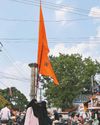The 39 Indian workers were killed when ISIS had reached a peak of brutality and had no intention of negotiating, unlike earlier hostage situations

On March 20, Minister of External Affairs Sushma Swaraj informed a stunned Rajya Sabha that the 39 Indian workers who had been in the custody of the Islamic State of Iraq and Syria (ISIS) since June 2014 were dead. This announcement has ended four years of hope in the hearts of family members that their loved ones still lived, a hope that had survived in spite of persistent reports of ISIS’s intolerance and brutality and its dreadful record of killing those in its custody.
ISIS was the product of the US-led war on Iraq in 2003 and the subsequent occupation of that country, during which state structures and institutions were systematically dismantled and the virus of sectarianism was injected deliberately into the broken political and social order.
Wellsprings Of ISIS
The US occupation of Iraq meant not just the robust ‘empowerment’ of the Shia as part of its deliberate divide-and-rule policies—it also meant the dismissal, incarceration, torture, unemployment and humiliation of Sunnis in senior ministerial, civil service, armed forces and security positions, besides attacks on them and their family members by the newly set-up Shia militia, often backed by Iran.
The jehad led by the Afghanistan veteran Abu Musab al-Zarqawi from 2003 attracted a large number of such disenfranchised Sunnis who now took up arms against the US occupation and the Shia community in general.
This story is from the {{IssueName}} edition of {{MagazineName}}.
Start your 7-day Magzter GOLD free trial to access thousands of curated premium stories, and 9,000+ magazines and newspapers.
Already a subscriber ? Sign In
This story is from the {{IssueName}} edition of {{MagazineName}}.
Start your 7-day Magzter GOLD free trial to access thousands of curated premium stories, and 9,000+ magazines and newspapers.
Already a subscriber? Sign In

Trump's White House 'Waapsi'
Donald Trump's victory in the US presidential election may very well mean an end to democracy in the near future

IMT Ghaziabad hosted its Annual Convocation Ceremony for the Class of 2024
Shri Suresh Narayanan, Chairman Managing Director of Nestlé India Limited, congratulated and motivated graduates at IMT Ghaziabad's Convocation 2024

Identity and 'Infiltrators'
The Jharkhand Assembly election has emerged as a high-stakes political contest, with the battle for power intensifying between key players in the state.

Beyond Deadlines
Bibek Debroy could engage with even those who were not aligned with his politics or economics

Portraying Absence
Exhibits at a group art show in Kolkata examine existence in the absence

Of Rivers, Jungles and Mountains
In Adivasi poetry, everything breathes, everything is alive and nothing is inferior to humans

Hemant Versus Himanta
Himanta Biswa Sarma brings his hate bandwagon to Jharkhand to rattle Hemant Soren’s tribal identity politics

A Smouldering Wasteland
As Jharkhand goes to the polls, people living in and around Jharia coalfield have just one request for the administration—a life free from smoke, fear and danger for their children

Search for a Narrative
By demanding a separate Sarna Code for the tribals, Hemant Soren has offered the larger issue of tribal identity before the voters

The Historic Bonhomie
While the BJP Is trying to invoke the trope of Bangladeshi infiltrators”, the ground reality paints a different picture pertaining to the historical significance of Muslim-Adivasi camaraderie